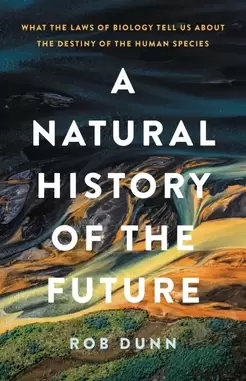|
We highly recommend watching this eight-minute video. Grasslands are a surprising part of the North Carolina Piedmont’s (and much of the Southeast's) ecological history. Learn how planting native grassland species in our yards and other open areas mimics historical landscapes while improving the soil and fighting our changing climate. This story is part of the Pulitzer Center’s Connected Coastlines reporting initiative and was produced by PBS-NC.
0 Comments
 Most of the information and viewpoints found on the Conservation South website focus on issues, opportunities, and resources directly concerned with environmental conservation and restoration in the southern U.S. This book review is different: the topic is a “deep time” perspective. British paleontologist and evolutionary biologist Thomas Halliday has authored Otherlands: Journey in Earth’s Extinct Ecosystems (Penguin Random House, 2022), a fascinating overview of how Earth’s ecosystems and biota have dramatically changed over the long 4-billion-years timeline of life and tectonic forces on our planet. Each of Halliday’s sixteen chapters describes wholesale changes in ecosystems and life forms that have repeatedly occurred throughout eras of Earth history. Earth is now a “human planet,” asserts Halliday, nearly totally affected by we humans. He observes, “The world as it is today is a direct result . . . of what has gone before. Much of life in the past happens in a steady state of slow-changing existence, but there are times when everything can be upended. . . . It is by looking at the past that palaeobiologists, ecologists and climate scientists can address the near- and long-term future of our planet, casting backwards to predict possible futures. Unlike past occasions . . . our (human) species is in an unusual position of control over the outcome (of a fundamentally altered biosphere). We know that change is occurring, we know that we are responsible, we know what will happen if it continues, we know that we can stop it, and we know how. The question is whether we will try.” <continued . . .>  We recommend for your reading a thought-provoking new book by NC State University professor of applied ecology and entomologist Rob Dunn – “A Natural History of the Future: What the Laws of Biology Tell Us About the Destiny of the Human Species” (published in late 2021). This is the seventh book authored by Dunn, whose books and eloquent authorship are being compared to that of E.O. Wilson. Rather than asking whether nature will survive us humans, Dunn suggests it is better to ask whether we will survive nature. Despite our efforts to control nature, life has its own rules and no amount of human tampering can rewrite those basic rules. Dunn explains fundamental laws of ecology, evolution, and biogeography and shows that life will be changed but not repressed by our human activities. Instead, Dunn shows why it is our own human future and destiny that hang in the balance. Some excerpts from Rob Dunn’s conclusions in “A Natural History of the Future”: “In the near future, parts of Earth will be much more pleasant for extremophilic life-forms but much less for humans. We can find ways to survive such change. Just not forever. Eventually, we will go extinct. All species do. This reality has been called the first law of paleontology. The average longevity of animal species appears to be around two million years, at least for taxonomic groups for which the phenomenon has been well studied. If we consider just our species, Homo sapiens, that means we may still have some time. Homo sapiens evolved roughly two hundred thousand years ago. We are still a young species. This suggests that if we last an average amount of time, our road is still long. On the other hand, it is the youngest species that are most at risk of extinction. Like puppies, big-eyed and not yet wise, young species are prone to fatal mistakes.” continued . . . All over the country, the weather has been wacky. Flooding. Snowstorms. Hail. Fires. Tornadoes. Extreme winds. (And the expanded hurricane season has not yet begun.) It's enough to make you run and hide.
But it is also no surprise. The recent IPCC climate report made it very clear that we are going to have to move away from fossil fuels rapidly and that farms, forests, woodlands, wetlands, and grasslands are an important part of the natural climate solution. As shared by The Nature Conservancy, "the latest IPCC report shows greenhouse gas emissions continue to rise, and current plans to address climate change are not ambitious enough to limit warming to 1.5°C above pre-industrial levels — a threshold scientists believe is necessary to avoid even more catastrophic impacts." The key is to remember that natural climate solutions are central to pulling climate polluting gasses from the air. They can help reduce the impacts of extreme weather. And they can provide for better production of food, assist with plant and animal survival, and improve water quality. But we must also realize that we will need to support these natural climate change solutions by finding ways to increase energy conservation and move to renewables. Soon. It will take a dual approach. And it will take leadership to reshape expectations and redefine what is considered conservation work. Research is documenting the opportunities, and the challenges, of our response to climate change. Change won't happen by chance. But neither will land and water conservation. Let’s make the changes we need happen. --Judy Anderson, Community Consultants, LLC* *Judy Anderson has worked in land conservation since the mid-1980s. She offers a free bi-monthly climate change eNewsletter. Each month, one issue focuses on research related to the impacts of climate change, plus tips on climate communication; the other issue features land trusts taking action to slow climate change. Sign up on her website (community-consultants.com), where you will also find a wide range of articles organized by topic. This post was reprinted from her most recent (April 2022) eNewsletter’s introduction, with permission.  While recently browsing in my local independent bookstore, I spied a newly published collection of essays, interviews, and poems titled What Kind of Ancestor Do You Want to Be? (Univ. Chicago Press, 2021). Possibly due to my age and becoming a grandparent, and possibly because I recently researched the genealogy of my own family lineage (with fascinating discoveries and illuminations), I purchased a copy and found it thought-provoking enough to share with others. The editors explain that more than asking how we want to be remembered, the question--What kind of ancestor do you want to be?—suggests that we are ancestors, always and already, even if we are never remembered or never have children. The question deepens our awareness of the roots and reach of our actions and non-actions. Whether we like it or not and whether we know it or not, we are advancing values and influencing systems that will continue long past our lifetimes. These values and systems shape communities and lives that we will never see. The ways we live actually create and reinforce the foundation of life for future generations. We are responsible for how we write and convey our values, what storylines we further and set forth—for the world we choose to cultivate, for the lives that follow ours. So, how are we to live? The editors of this intriguing book state that this fundamental question is ever more important to ask in this time of global crises and uncertainties. The question catalyzes dreams and imagination and is relevant for all members of the human community. We are challenged to ask this question of ourselves, our family, our community. You too may find this collection of perspectives relevant, stimulating, and contributing to mindfulness. Whether or not you read the book, I urge you to ask this question of yourself. --Chuck Roe, President, Southern Conservation Partners Southern Conservation Partners shares the concerns expressed by many friends and defenders of the forest ecosystems of the southern U.S., which are currently being exploited and threatened by mass removal for export as wood pellet biofuels principally in Europe. Many of the forests being cut are already imperiled river bottomlands forests ecosystems that are critically necessary for sustenance of the environmental health of the southern U.S. region.The biofuel producing companies are “green washing” their activities and propaganda based on intentionally false and deceptive claims that cutting and burning trees on a mass scale is “carbon neutral” because the forests may regrow sometime in the long-term future and hence forests are a “renewable” resource. Most of the processing plants that collect, chip, and process cut trees in huge volumes for export are located in marginalized, economically distressed communities, and those industrial plants are operating at full capacity 24/7 and emitting huge quantities of airborne pollutants. The Southern Environmental Law Center, the Dogwood Alliance, and the National Wildlife Federation are leading defense actions to save our forests.
We recommend you watch this 30-minute documentary film: Burned: Are Trees the New Coal? In addition, the North Carolina Wildlife Federation and its coastal Island Wildlife Chapter recently presented an excellent, profoundly important webinar about this crisis. VIEW the recording of that webinar. Several other resources on this important issue: Wood Pellet Map Carbon Markets Article--How Marginalized Communities in the South are Paying the Price for “Green Energy” in Europe Forests are vital elements to our nation’s infrastructure and environmental health. Strong climate action rooted in justice has never been more urgent. Valuing standing forests is our best climate defense! Take the “Stand 4 Forests Pledge” HERE. |
When we see land as a community to which we belong, we may begin to use it with love and respect.... Conservation, viewed in its entirety, is the slow and laborious unfolding of a new relationship between people and land." There is in fact no distinction between the fate of the land and the fate of the people. When one is abused, the other suffers. From the PresidentSCP President Chuck Roe looked at land conservation along the route of John Muir's "Southern Trek." About ViewpointThis blog offers views of our Board and partners. We invite your viewpoint on the following questions: Archives
April 2024
Categories
All
|


 RSS Feed
RSS Feed